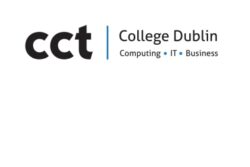Studying at college involves a lot more independent (self) study than in secondary school. Denis Cummins, the Dean of Faculty, shares his observations of students working as independent learners at CCT College Dublin.
Background
Independent learning refers to the process where students take responsibility for their own education, managing their time, resources, and study habits to achieve academic success. It emphasizes self-motivation, self-discipline, and the ability to learn without constant supervision or direction from lecturers.
Practical tips
Dean of Faculty, Denis Cummins at CCT College Dublin, shares his thoughts on the key aspects of independent learning:
- Self-Directed Study: Students identify what they need to learn, set their own learning goals, and find appropriate resources to meet those goals. This often includes reading textbooks, researching online, and using library resources.
- Time Management: Independent learners plan and organize their time effectively to balance academic responsibilities with other aspects of their lives. This includes scheduling study sessions, meeting deadlines, and preparing for exams without relying on reminders from instructors.
- Critical Thinking and Problem Solving: Students develop the ability to analyse information, think critically, and solve problems on their own. They learn to question assumptions, evaluate evidence, and develop well-reasoned arguments.
- Research Skills: Independent learning often involves conducting research, which requires finding and evaluating sources, synthesizing information, and presenting findings in a coherent manner. This skill is essential for writing papers, completing projects, and contributing to academic discussions.
- Self-Assessment and Reflection: Students regularly assess their own progress and reflect on their learning experiences. This helps them identify areas for improvement, adapt their study strategies, and set new goals.
- Motivation and Persistence: Independent learners are often intrinsically motivated, driven by curiosity and a desire to understand the material. They are persistent in overcoming challenges and setbacks, seeking help when necessary, and staying focused on their long-term objectives.
- Utilising Resources and Support: While independent learning emphasizes self-reliance, it also involves knowing when and how to seek help. This includes using college resources such as tutoring centers, study groups, office hours with lecturers, and online forums.
- Application of Knowledge: Independent learners apply what they have learned to new situations and problems. This can involve practical applications in labs, internships, or real-world projects.
Overall, independent learning prepares students for lifelong learning and professional development by fostering a proactive and self-sufficient approach to acquiring knowledge and skills.
About Denis Cummins


Studying at university involves a lot more independent (self) study than in secondary school. While subjects involving a lot of practical sessions can lead to very busy timetables, for many courses there is relatively little contact (teaching) time and a lot of reading and note-taking to do outside of lectures.
The amount of learning material is much larger, it has to be mastered in a shorter period of time and it is not repeated as frequently as it was in school or college. Outside of tests, assignments and exams, nobody will be checking whether or not you understand what you are learning. That’s both interesting and challenging – sometimes school can feel like you’re just doing what you’re told and ticking boxes of doing all the work only doing as much work as you need to so you can pass exams. At university, you’re in control of what work you do, how much and when.
You have to learn how to quickly and effectively extract the most important elements from what you read and hear and to make a distinction between types of source (librarians can help you with this, and often run sessions on how to work more effectively become information literate). While your course will have a reading list, you’ll also need to a) work out which are the most important items on the list and b) read beyond that. A lot.
On top of that, you have to manage your time – when you get up, when you eat, leave for teaching sessions, do all the other work, go to any appointments you have booked, have a life outside study, go to bed…
“Modules are moving too fast, and I do not have time to learn all the things I would like to. I am slow at reading and hearing and my memory is bad. The speed of completing assignments and note-taking is also slow, as I tend to be a very neat and precise writer. There is no time to properly read books on the subject .” (current student)
About Marc Fabri
Marc Fabri is a Senior Lecturer at Leeds Beckett University.
About the author
This post has been adapted by CCT College Dublin to include information from our Dean of Faculty, Denis Cummins, in addition to information provided by Marc Fabri, Senior Lecturer at Leeds Beckett University.


 Back
Back 